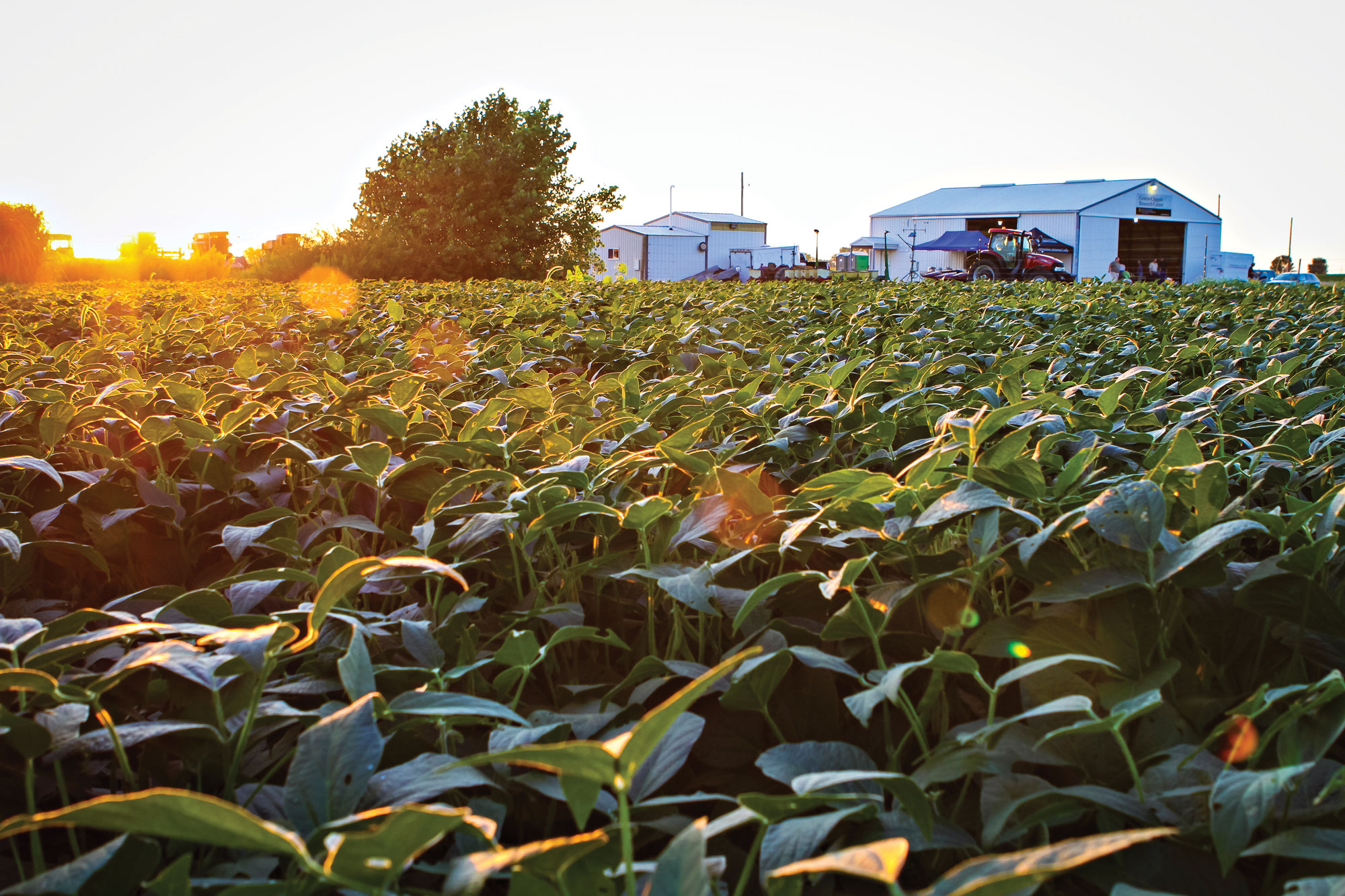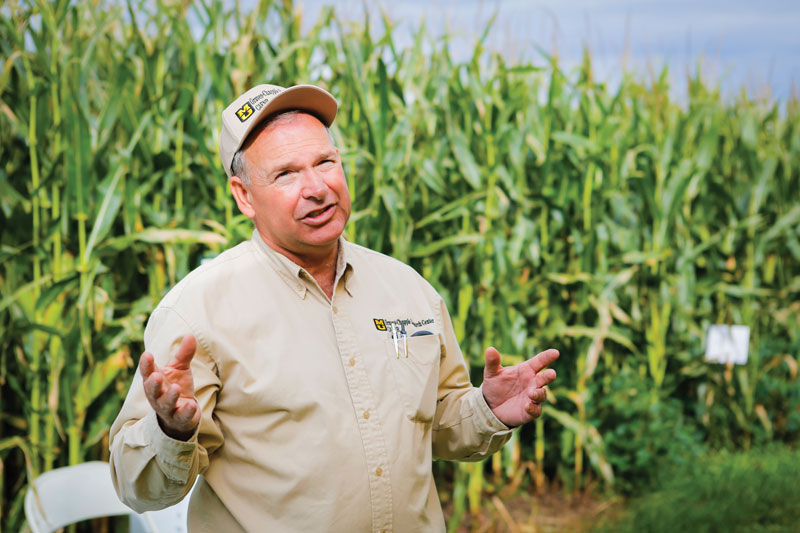
No-Till, No Problem
April 20, 2018
Written By Logan Jackson
Graves-Chapple Research Center Demonstrates Benefits of No-Till Systems
Landowners across Missouri use numerous tillage systems, including plow, chisel, disk or strip-till.
Tillage is the preparation of soil for growing crops using equipment to mechanically agitate and mix the soil. Eliminating tillage is also an option—simply called no-till. The University of Missouri College of Agriculture, Food and Natural Resources’ Graves-Chapple Research Center has made no-till its focus since it was established in 1988.

“The Graves-Chapple Research Center was founded to elaborate on the no-till theme,” said Superintendent Jim Crawford. “No-till was new when the center was created. It was an untried, untested practice in northwest Missouri.”
No-till allows for the organic matter to be built up instead of tilling it into the ground. Early planters weren’t built to handle no-till because they couldn’t penetrate the ground well, which is one of the big reasons farmers didn’t practice no-till. There were a few add-ons to those older planters that worked better, but they didn’t give the best results. Crawford said any planter built since at least 2000 can handle the no-till system just fine, as the proper adjustments have been made.
No-till is in the background of nearly all of the research projects and demonstration plots at Graves-Chapple, located near Rock Port. Crawford said they compare no-till with three other tillage systems: fall chisel followed by spring disking; heavy and light disking in the fall with cultivation in the spring; and tilling once with a disk in the spring to smooth and level the soil up and incorporate some of the weeds.
“I would say 98 percent of our research and demonstration plots are done no-till,” Crawford said. “We do have a couple researchers who want tillage, but they really have to convince me to use it.”
Graves-Chapple has done yield comparisons on the different systems versus the input costs for the past 27 years. All of the inputs are identical on the plots, with the exception of tillage. The same seed, same herbicide and the same fertility plan is used across the plots.
“No-till is not the highest yielding every single year,” Crawford said. “It really depends on the year. Once it gets dry and hot, though, no-till will excel over the conventionally tilled soil.
“Over the years, we haven’t seen a statistically significant difference in yields between the different tillage systems. The big difference comes in profitability.”
Crawford said there are many savings when landowners use a no-till system, the most important of which is money. Tillage involves making multiple trips over the field with a large, high horse-powered tractor. With no-till, landowners don’t have to make the extra trips over the field, saving fuel costs. There are also costs associated with tillage tools and labor. With no-till, those costs aren’t there.
“You’re saving a lot of money in certain areas when you do no-till,” Crawford said.
There is also an environmental factor when it comes to no-till versus tillage. Multiple passes over a field with a tractor loosens the soil and makes erosion more possible.
“Soil is the No. 1 contaminant in Missouri’s rivers and streams,” Crawford said. “When using no-till, you’ll cut down on erosion from wind and water.”
Crawford said they have looked at erosion plots in the past. When using tillage, those studies showed a topsoil loss of 45 tons per acre per year. With no-till, that loss was only 3 or 4 tons per acre.
No-till systems don’t bring weed seeds to the surface, either.
Graves-Chapple also looks at water infiltration rates in tillage systems. Crawford said the tilled plots generally had water standing, with the no-till plots showing no water at all.
“It really is tough to measure some of the aspects of no-till,” he said. “The easiest to monitor is dollars saved.”
Crawford said landowners must be patient when it comes to implementing a no-till system. The soil has to adjust to the no-till system. It can take up to six years to reap the full benefits of the system.
“We feel really comfortable recommending no-till as a viable option,” Crawford said. “We have nearly 30 years of research into it, and we’ve seen the benefits.”
Crawford added landowners are hesitant to jump onto the no-till bandwagon for a handful of reasons. Some of those reasons are very simple, such as the landowners being comfortable with how tillage makes their field look. Tillage has also been a common practice for years, and that routine is important for landowners.
“It really doesn’t matter what the crop looks like in May and June,” he said. “It matters what it looks like in October when it goes through the combine.”
The Graves-Chapple Research Center continues to work with local landowners on a variety of projects, including the benefits of using no-till. Crawford said recently the center has put a focus on going back to the basics of no-till.
“We want to rededicate ourselves in a way,” Crawford said. “We’re focusing on reeducating those early no-till adopters and providing more information for future generations.”

